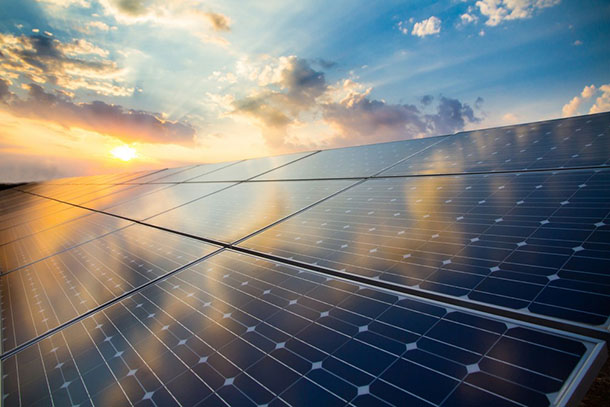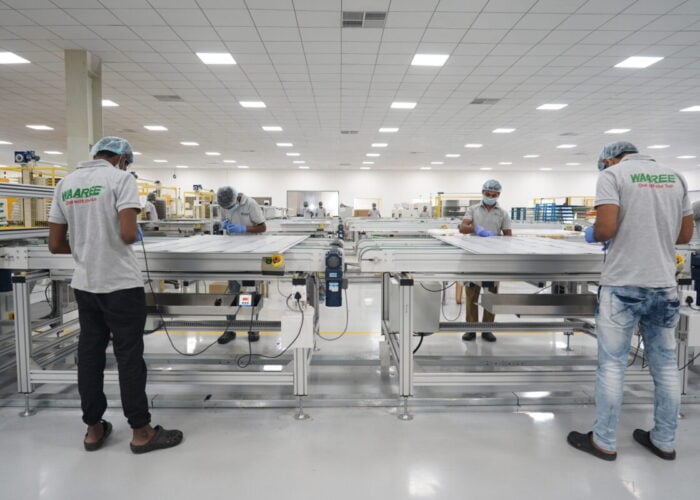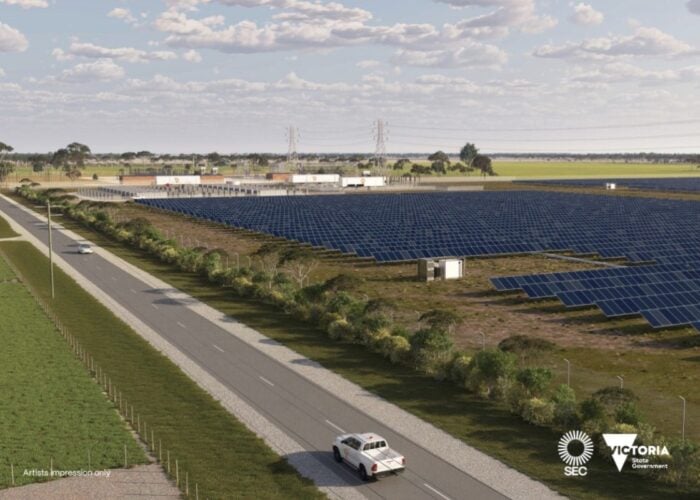
Indian conglomerate Reliance Industries will construct an integrated PV module factory and look to enable more than 100GW of solar by 2030 as part of a US$10.1 billion clean energy plan.
The strategy, announced by managing director Mukesh Ambani in a shareholder meeting, will also see the company build a battery storage manufacturing unit as well as green hydrogen and fuel cell facilities, all at a complex in the Indian state of Gujarat.
Unlock unlimited access for 12 whole months of distinctive global analysis
Photovoltaics International is now included.
- Regular insight and analysis of the industry’s biggest developments
- In-depth interviews with the industry’s leading figures
- Unlimited digital access to the PV Tech Power journal catalogue
- Unlimited digital access to the Photovoltaics International journal catalogue
- Access to more than 1,000 technical papers
- Discounts on Solar Media’s portfolio of events, in-person and virtual
Or continue reading this article for free
“I envision a future when our country will be transformed from a large importer of fossil energy to a large exporter of clean solar energy solutions,” said Ambani, adding that he is inspired by India’s target of reaching 450GW of renewables capacity by 2030.
Reliance’s first integrated solar factory will convert raw silica to polysilicon, which will then be converted to ingots and wafers to make solar cells that will be finally assembled into modules. A significant part of the 100GW of PV that the company aims to enable will come from rooftop solar and decentralised installations in India.
This plant will be complemented by an energy storage factory, with the company planning to collaborate with global leaders in battery technology, exploring electro chemical technologies that can be used for large-scale grid batteries.
In addition, Reliance will build an electrolyser factory to manufacture modular electrolysers to produce green hydrogen for domestic use and export. It will also construct a fuel cell plant, as Ambani touted the potential of fuel cell engines to power heavy transport, data centres, emergency generators, microgrids and industrial equipment. The company will invest INR600 billion (US$8.09 billion) on the four plants over the next three years.
A further INR150 billion (US$2.02 billion) will be invested in value chain, partnerships and future technologies, including upstream and downstream industries, with the company set to establish a renewable energy project management and construction division as well as a renewable energy project finance division.
Reliance, whose oil refining business accounted for more than half of its 2020 revenues, is aiming to become net carbon zero by 2035. “Our world has only one option: rapid transition to a new era of green, clean and renewable energy,” Ambani said.
India’s government is aiming to build the country’s PV manufacturing supply chain as it bids to reach 280GW of installed solar by 2030. According to the Ministry of New and Renewable Energy, India has annual manufacturing capacities of 9GW – 10GW for PV modules and around 2.5GW for cells, meaning deployment heavily depends on imports.
The country has launched a production-linked incentive scheme that will allocate around US$603 over five years to back the development of high-efficiency PV modules, while a 40% basic customs duty on modules and 25% duty on cells will come into effect next year, adding to a raised duty on solar inverters.
Following claims that India’s solar manufacturing sector has been impacted by dumped imports of cells, authorities last month launched an anti-dumping investigation into imports of solar cells from China, Thailand and Vietnam.






